
 Dayton Reimer
The Hockey Writers
Dayton Reimer
The Hockey Writers
63
Reads
0
Comments
Top 5 Medicine Hat Tigers to Make it to the NHL
The Medicine Hat Tigers have been members of the Western Hockey League since 1970-71, becoming the fifth expansion team and the 10th franchise in the league. Since then, the team has had a storied history, which has seen them earn nine first-place finishes, five WHL championships, and two Memorial Cups. They’ve also been the starting place for dozens of future NHL players, many of whom became stars.
Related: Top 5 Vancouver Giants to Make it to the NHL
Few teams in the WHL can boast as many top prospects as the Tigers. 188 players have been selected in the NHL draft from the organization, with draft picks ranging from second to 273rd overall. While not all became regulars in the NHL, there have been several throughout history who’ve taken the NHL by storm. These are the five best Tigers’ alumni to play in the NHL.
5. Jay Bouwmeester
Played for: Florida Panthers, Calgary Flames, St. Louis Blues
Tigers Stats: 194 GP – 40 G – 111 A – 151 PTS
NHL Stats: 1240 GP – 88 G – 336 A – 424 PTS
The youngest player on our list, Jay Bouwmeester played with the Tigers from 1998 to 2002 and was one of the best players on his team. He joined them full-time at the age of 16 and shined instantly, scoring 34 points for the second-highest total on defence, despite being three to four years younger than most of his teammates. He also joined the Canadian World Junior roster that winter, becoming one of the youngest players to ever play on the team. Team Canada asked him to return two more times, making him one of the few players to appear in three tournaments.
His international resume and WHL dominance earned him the CHL’s Top Draft Pick honour, and at the 2002 NHL Draft, he was selected third overall by the Florida Panthers. He made his NHL debut the next season, was selected to the NHL’s All-Rookie Team, and ended seventh in Calder Trophy voting. Bouwmeester was even asked to join the Canadian World Championship team at the end of the season, becoming one of the youngest players to appear at that tournament as well.
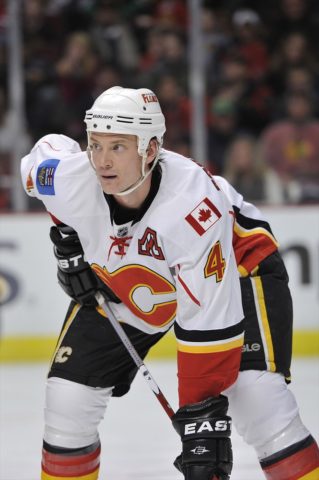
Yet, despite all his success, Bouwmeester began gaining a reputation as a player who just couldn’t win. With the Tigers, he never made the playoffs and was often the lone bright spot on some weak teams. At his three World Junior appearances, he won two silver medals and one bronze but came up short in claiming gold. Even at the NHL Draft, he was supposed to be the first overall selection – the first Tiger to do so – but a last-minute deal between the Panthers and Columbus Blue Jackets flipped their draft positions, and Rick Nash went first instead.
While he did win gold medals at the World Championship in 2003 and 2004, as well as an Olympic gold medal in 2014, it did nothing to help his reputation in the NHL. Bouwmeester didn’t make his first playoff appearance until 2012-13 at the age of 30, having only gotten the chance after a deadline deal between the Flames and Blues. Six seasons later, with age and health concerns slowing him down, he finally won the Stanley Cup at 36 years old.
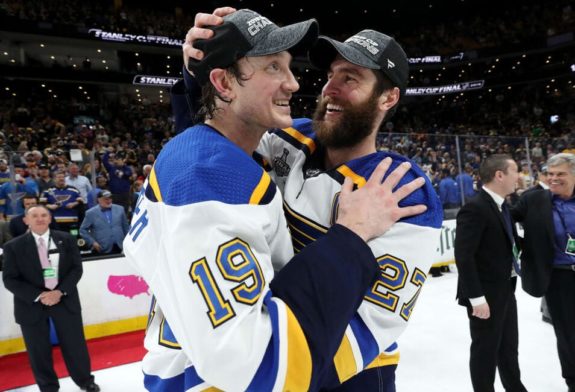
While he won’t go down as one of the league’s best defensemen, he will always be remembered for his leadership, consistency, and longevity. From 2004 to 2014, Bouwmeester played an incredible 737 consecutive games, the ninth-longest streak in NHL history. There probably isn’t much gas left in the tank, but who knows? Bouwmeester has never been one to give up despite numerous obstacles and will likely remain in the NHL until they drag him off the ice.
4. Tom Lysiak
Played for: Atlanta Flames, Chicago Blackhawks
Tigers Stats: 195 GP – 118 G – 209 A – 327 PTS
NHL Stats: 919 GP – 292 G – 551 A – 843 PTS
Tom Lysiak was arguably the greatest Tiger of all time. In his sophomore season of 1971-72, he set a franchise record with 143 points in 63 games, claiming the Bob Clarke Trophy as the WHL’s top scorer. He’d somehow top it in 1972-73, scoring 154 points in 67 games, defending his title as the league’s highest scorer. Together with a young Lanny McDonald on the right-wing, they ran roughshod through the playoffs, helping the Tigers claim their first WHL championship. Lysiak set another record with 39 points in a single postseason, and he and McDonald combined for 76 points.
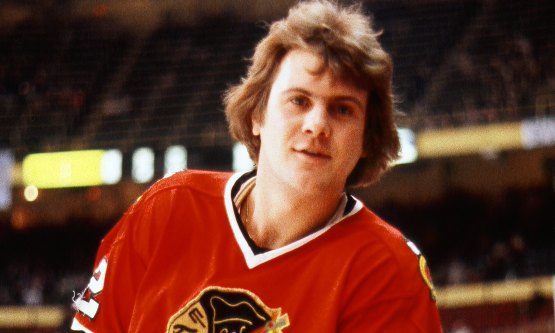
At the NHL draft that season, Lysiak was selected by the Atlanta Flames second overall, behind Ontario-based defenseman Denis Potvin, who went to the New York Islanders. The Flames were starved for talent and Lysiak instantly became the face of the franchise. In his rookie season, he scored 64 points and helped the Flames make the playoffs for the first (and last) time in franchise history. He very nearly won the Calder Trophy for his efforts but came up 14 votes short to Potvin.
Related: All-Time Best Players for Defunct NHL Teams
Lysiak continued to thrive in Atlanta despite the lack of top-tier support. He was named to the All-Star team in 1974-95, 1975-76, and 1976-77, scoring 77, 82, and 81 points, respectively. He also helped two of his linemates win the Calder – Eric Vail in 1975 and Willi Plett in 1977. But the Flames failed to get any better. Desperation caused the team to try and shake things up in 1979, so they traded their newly-minted captain to the Chicago Blackhawks in a massive eight-player deal.
Lysiak loved Atlanta and was greatly upset at the move, only made worse when he noted three hand-drawn tombstones in the Chicago stands, each with the number of the player they had traded away. But he soon swayed the angry fans, scoring at least 60 points over the next four seasons and led the team in points in 1980-81. He set career highs with the Blackhawks in goals (32), assists (55) and tied his record for points (82).
If Lysiak isn’t a hockey player, then I’ve never seen one…He’s unselfish, he puts out for the team, and he’s the same guy on the road as he is at home.
Tony Esposito, teammate on the Blackhawks, NHL.com
Lysiak retired quietly in 1986 at the age of 33, bogged down by injuries, and return to Atlanta, where he bought a farm. He remained there until his death in 2016 due to leukemia. Many of his teammates remember him as a driven, thoughtful player who always made sure everyone was working and laughing together.
3. Chris Osgood
Played for: Detroit Red Wings, New York Islanders, St. Louis Blues
Tigers Stats: 118 GP – 57 W – 49 L – 5 T – 2 SO
NHL Stats: 744 GP – 401 W – 216 L – 95 T – 50 SO
Despite growing up in Peace River, Alberta – five hours north of Edmonton – Chris Osgood played up through the Medicine Hat minor league system before joining the Tigers in 1989-90. He instantly became the team’s starting goalie, playing in 57 games and posting one of the league’s best save percentages. Osgood’s workload decreased slightly in 1990-91, but he posted even better numbers, ranking in the top-10 in goals-against-average, and second in save percentage. He also became just the second WHL goalie to score a goal.
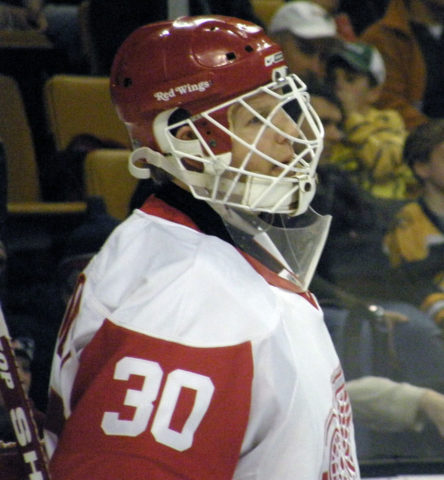
The Red Wings decided to take a chance on the 5-foot-10 netminder, using a third-round pick to draft him in 1991. Osgood returned to the Tigers for the 1991-92 season but was traded early to the Brandon Wheat Kings and then the Seattle Thunderbirds, who were loading up for the Memorial Cup as the host city. It was his only appearance at the esteemed tournament, but his performance wasn’t able to capture the title. Osgood joined the Red Wings in 1993-94 after a season in the AHL and, surprisingly, stole the starting job from veteran Tim Cheveldae. He was the Rookie of the Month in Feb 1994 and finished the season fifth in Calder voting.
Behind a supremely talented roster, Osgood helped the Red Wings break a 42-year Stanley Cup drought in 1996-97, then helped them repeat as champions in 1997-98. He served as the team’s starter for the next four seasons but failed to propel the team into another deep playoff run. So, during the 2000-01 offseason, the Red Wings went for broke, trading for Dominik Hasek and placing Osgood on waivers, where the Islanders claimed him for free.
With the Islanders and later the Blues, Osgood was good, but never able to make any playoff noise. So, when his contract expired in 2005, Osgood re-signed with the Red Wings and was expected to take over the starting job from Manny Legace. A knee injury forced him to split duties from 2006-09 during the season, but he was given the green light in the playoffs, where he shined. Osgood played all but four playoff games in 2008, posting a 1.55 GAA before capturing his third Stanley Cup. In 2009, he played all but one, taking the Red Wings all the way to the Final before they fell to the Pittsburgh Penguins in seven games.
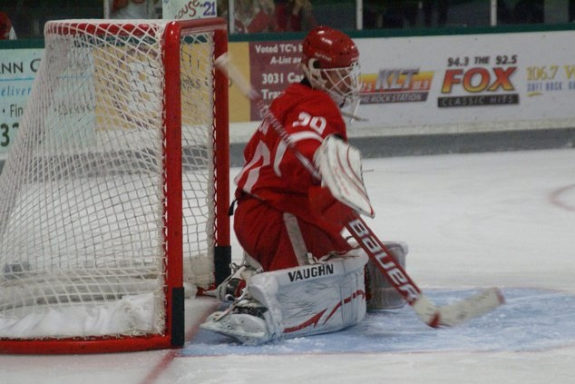
Osgood has since become the poster boy for underrated goalies. Playing on an incredibly deep Red Wings team, he was often lost in the fray, despite putting up very strong numbers en route to helping the team win three Stanley Cups. His name appears twice on the William Jennings trophy, and several more times on the NHL’s all-time record book: he sits 13th in career wins with 401, ninth in playoff wins with 74, and fifth in playoff shutouts with 15. He slipped into the background since his retirement in 2011, but he still holds out hope to one day hear his name announced at the Hall of Fame.
2. Trevor Linden
Played for: Vancouver Canucks, New York Islanders, Montreal Canadiens, Washington Capitals
Tigers Stats: 144 GP – 62 G – 86 A – 148 PTS
NHL Stats: 1372 GP – 375 G – 492 A – 867 PTS
When Linden joined the Tigers in 1986-87, he found himself lost in a very deep roster that had finished first in the league the previous season and was primed to repeat. Still, he managed 36 points in his first season and chipped in nine points over 20 playoff games, helping the Tigers capture their second league title and a ticket to the Memorial Cup tournament. There, Linden was able to play a bit more and he rose to the occasion, scoring two goals and adding an assist in five games, helping the Tigers win their first Memorial Cup.
Related: The Legendary Career of Roberto Luongo
The following season, Linden was ready to take over. He put together 46 goals and 64 assists, along with 25 points in the playoffs. His 13 goals were the highest in the postseason and helped the Tigers earn their second-straight league title and second-straight Memorial Cup. Linden was named to the CHL All-Star team, capping an incredible year where he’d also won a gold medal at the World Juniors with Canada. He was easily one of the best prospects available at the 1988 NHL Draft, and the Canucks used their second-overall selection to take the 6-foot-4 center.
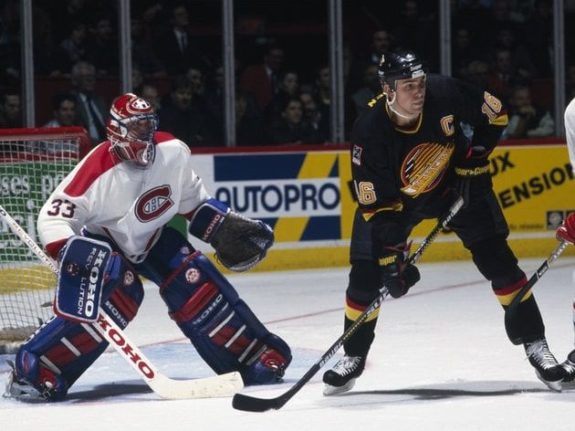
With the 1988-89 Canucks, Linden was instantly one of the best players. The rookie scored a team-leading 30 goals, finished second with 59 points, and helped the team reach the playoffs where he scored another seven points in seven games. Only New York Rangers’ defenseman Brian Leetch had a better season, and he claimed the Calder trophy over Linden by a close margin. By 1990-91, the Canucks had already named the young forward their captain, and he responded by leading the team again with 33 goals, 37 assists and 70 points – 21 points higher than the second place.
In 1993-94, the Canucks barely made the playoffs, but miraculously found themselves in the Stanley Cup Final against Leetch and the dominant Rangers. Though he was quiet in the first part of the series, he was on fire in Game 7, scoring two goals. But it wasn’t quite enough, and Canucks were defeat by a score of 3-2. Despite putting up an 80-point season in 1995-96, the Canucks struggled to return to their 1994 form, and before 1997-98, they acquired Mark Messier to provide extra leadership. Linden willingly gave up the ‘C’ to Messier but after a feud later with coach Mike Keenan, in the middle of the season, he was traded to the Islanders.
Without the support of Pavel Bure, Cliff Ronning, and Geoff Courtnall, Linden struggled to return to his dominance, despite remaining one of the league’s premier leaders. From 1998 to 2002, he played with the Islanders, Canadiens, and Capitals, all to roughly the same forgettable results. But with the Canucks lacking depth and veteran leadership, GM Brian Burke re-acquired Linden, making him an assistant captain for Markus Naslund. Back with the Canucks, he played his 1000th game in 2002 and scored his 800th point in 2004.
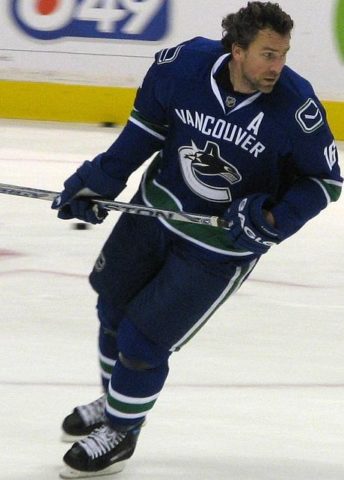
Linden retired in 2008 as the fourth-highest scorer in Canucks’ franchise history and ranks third in goals, assists, and games played. Behind Daniel and Henrik Sedin, he’s the greatest player ever to play in Vancouver, and his number ’16’ was retired by the team as soon as he announced his retirement, becoming just the second number they had hoisted to the rafters.
1. Lanny McDonald
Played for: Toronto Maple Leafs, Colorado Rockies, Calgary Flames
Tigers Stats: 195 GP – 118 G – 209 A – 327 PTS
NHL Stats: 1111 GP – 500 G – 506 A – 1006 PTS
No one from the Tigers organization has had a better NHL career than Lanny McDonald. He leads all alumni in goals and points, sits second in assists, and fifth in games played, despite playing on one of the first Tigers’ teams in franchise history. He also was the only member of the organization to be inducted into the Hall of Fame until 2020, when he was joined by Ken Holland, who played goal for the team from 1975-76.
Related: The Worst 1st Overall Draft Pick…Ever
McDonald joined the Tigers in 1971 after a brief stint with the Calgary Centennials and played two seasons in Medicine Hat, scoring 114 and 139 point seasons and helping the team to their first league championship in 1973. However, he was always second-best thanks to Lysiak, who always outscored him. Coming into the 1973 NHL draft, Lysiak again came out on top, going second overall while McDonald went fourth to the Maple Leafs.
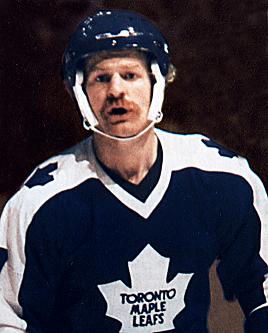
Yet it was McDonald who found more success in the NHL. With the Maple Leafs, he quickly established himself as an all-star player. By his third season, he scored 37 goals and 93 points and was selected to play at the Canada Cup, where he won a gold medal. He followed it up with three campaigns of at least 43 goals and 85 points and two All-Star team selections in 1976-77 and 1977-78. He and Darryl Sittler formed a deadly duo, just as he had with Lysiak, and though playoff success alluded the team, the future looked incredibly bright.
But trouble was brewing behind the scenes in Toronto. Punch Imlach was back as the general manager for the third time – thanks to the infamous Harold Ballard – and he decided to shake things up. That meant trying to trade captain Sittler, who would not waive his no-trade clause. So, to convince him otherwise, Imlach traded McDonald, one of Sittler’s closest friends on the team, to the Rockies. Sittler was furious and he responded by cutting the ‘C’ off his jersey with scissors and resigned from his captaincy.
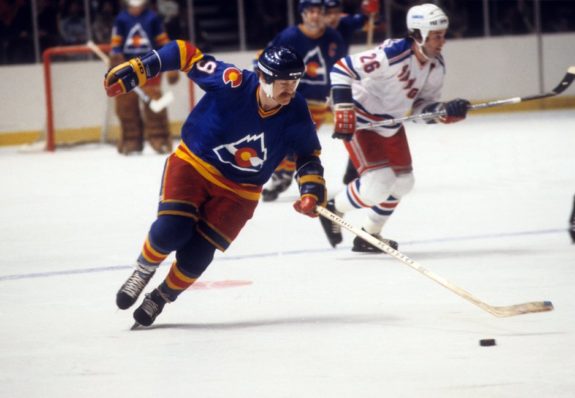
Meanwhile, McDonald was off to Colorado, where he remained a dominant player in the league, scoring 141 points over 142 games. But the Rockies were in rough shape and they decided to trade McDonald after barely two seasons, sending him to the Calgary Flames for Don Lever and Bob McMillan. Despite parting with two popular players, it was an absolute steal for the Flames – in his first full season, he posted his highest totals yet, scoring 66 goals for the second-highest mark in the NHL behind only Wayne Gretzky. After coming off a tough shoulder injury the season prior, the amazing performance earned him the Bill Masterton Trophy for sportsmanship in 1982-83.
Age and nagging injuries slowed him, but he kept going, eager to prove he could win a Cup, which had so far eluded him in his career. He was named captain in 1983-84 and helped the Flames make the Stanley Cup Final in 1986 but fell to the dominant Montreal Canadiens. Injuries kept him out of the majority of the next three seasons, but McDonald refused to give up. Finally, in 1988-89, the Flames returned to the Final against the Canadiens, where they won their franchise-first Stanley Cup.
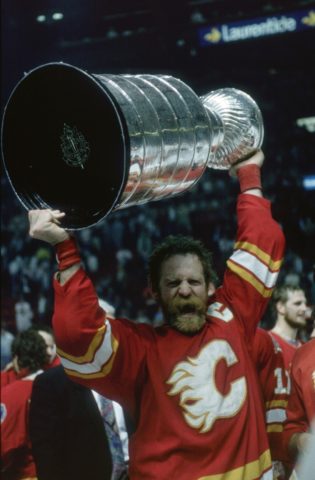
It was also the last game McDonald played. He ended his career as the 21st player to score 400 goals and one of the few to hit the 500 mark. He currently sits 89th in career points but was one of the earliest players to break the 1000-point plateau. He also is remembered for his leadership abilities, culminating in a King Clancy Award in 1988. His induction into the Hall of Fame in 1993 seemed like a formality; there were few before or after who had an impact on the game like McDonald.
Honorable Mentions
Donny Murdoch
An incredible junior star, Donny Murdoch still holds several records in the Tigers organization. He still holds the two highest goal-scoring records, set in 1974-85 and 1975-76 with 82 and 86 goals, and also has the highest point-per-game average, with 2.186. His rookie season with the Rangers was also record-setting; in 1976-77, he tied Howie Meeker’s record of most goals in a game by a rookie with five and set a Rangers rookie goal-scoring record with 32. But things quickly went off the rails for Murdoch, who was busted at the border for drug possession in the 1977 offseason, and he never returned to his rookie dominance.
Kelly Hrudey
Kelly Hrudey has always been a popular goalie. With the Tigers, he helped them make the playoffs twice in 1979-80 and 1980-81 but was unable to claim a title. He joined the Islanders in 1983-84, and four seasons later, he was part of history when he backstopped the Islanders in one of the longest playoff games ever.
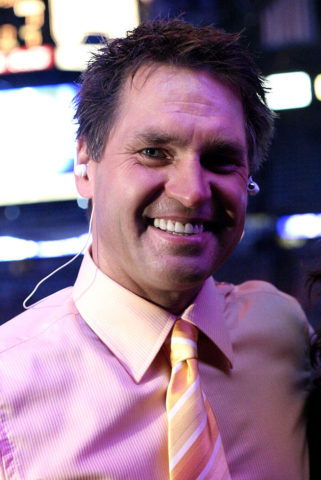
It was dubbed the Easter Epic because it ended just before 2 a.m. on Easter morning, 1987. However, the rest of his career was relatively unremarkable, and since retirement in 1998, he’s become a popular broadcaster on CBC.
Rob Niedermayer
Defensive forwards rarely get the praise they deserve and Rob Niedermayer is no exception. He was a very strong junior, twice surpassing 70 points during his tenure with the Tigers, and was a fifth-overall selection by the Panthers in 1993. In the NHL, however, he was mainly used as a shut-down forward. His best season came just in his second season in 1995-96, where he scored 61 points and 106 penalty minutes in 82 games. He was never named an All-Star, but when he finally teamed up with his more-famous brother Scott with the Anaheim Ducks in 2006-07, they got to lift the Stanley Cup together. He finished his career in 2011 with 1153 games played in the NHL.
A Storied Past
The Tigers have had dozens of players star in the NHL in some capacity. However, the most successful one came out of the high-flying 1970s and 1980s teams, where junior stars regularly flirted with 150 points and NHL stars scoring over 100 points was commonplace. Since then, few Tigers’ alumni have made as big of an impact in the NHL. Joffery Lupul, Tyler Ennis, and Clarke McArthur all came into the league with big expectations, but have largely failed to live up o them.

But that’s not to say it won’t happen again. The Tigers are one of the oldest franchises in the WHL and have built a strong following of dedicated fans in the small Western city. They know how to build a team for success and they regularly compete for the top place in their Conference. Will someone rise up greater than McDonald or Linden? Only time will tell, but it will exciting to watch the next generations of NHL talent fight to become the first-overall pick.
The post Top 5 Medicine Hat Tigers to Make it to the NHL appeared first on The Hockey Writers.
Popular Articles

















































 Blackhawks Chicago
Blackhawks Chicago Panthers Florida
Panthers Florida Penguins Pittsburgh
Penguins Pittsburgh Rangers New York
Rangers New York Avalanche Colorado
Avalanche Colorado Kings Los Angeles
Kings Los Angeles Maple Leafs Toronto
Maple Leafs Toronto Bruins Boston
Bruins Boston Capitals Washington
Capitals Washington Flames Calgary
Flames Calgary Oilers Edmonton
Oilers Edmonton Golden Knights Vegas
Golden Knights Vegas Senators Ottawa
Senators Ottawa Lightning Tampa Bay
Lightning Tampa Bay Flyers Philadelphia
Flyers Philadelphia Red Wings Detroit
Red Wings Detroit Islanders New York
Islanders New York Sabres Buffalo
Sabres Buffalo Devils New Jersey
Devils New Jersey Hurricanes Carolina
Hurricanes Carolina Blue Jackets Columbus
Blue Jackets Columbus Predators Nashville
Predators Nashville Stars Dallas
Stars Dallas Jets Winnipeg
Jets Winnipeg Wild Minnesota
Wild Minnesota Blues St. Louis
Blues St. Louis Mammoth Utah
Mammoth Utah Ducks Anaheim
Ducks Anaheim Canucks Vancouver
Canucks Vancouver Sharks San Jose
Sharks San Jose






